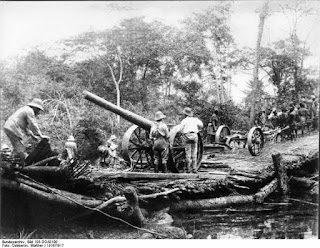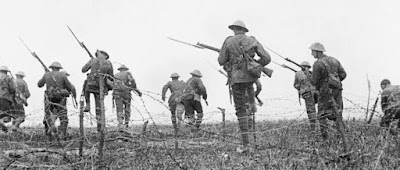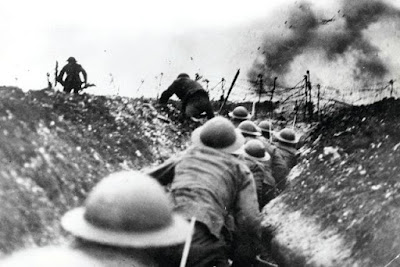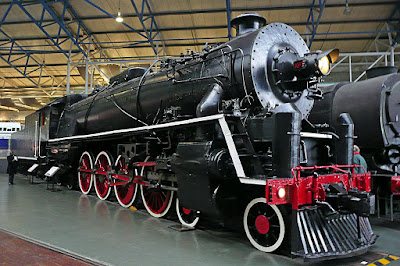How different it was when I was a lad in the seventies. This was the era when cheap plastic made toys and games affordable for the first time in quantities that could fill an average domestic house in just a few birthdays.
How we looked at toys was also different. First we'd go to an actual toy shops, where we'd get some catalogues to take home. For a generation that's grown up with the internet it's hard to explain the mystical nature of the catalogue. Here were all the toys you'd dreamt of, usually displayed in wonderful dioramas, being played with by children who were deliriously happy because they were playing with best toy that had ever been made.
I think I probably spent more time reading catalogues, either at home, in school, than I ever did playing with my own toys. Probably because of this when I think back to my wonderful, care-free, self-indulgent seventies childhood it's the toys I didn't own that I remember most. They were the toys that always did what they said on the tin, that never broke and never got boring.
These offering from the gods will now only ever exist in my imagination. Sure, I could buy the lot on ebay. But I'm not eight any more, I just wouldn't enjoy them in the same way.
Hornby Operating Breakdown Crane
I must admit I never got train sets. My dad was a bit of a train buff, and he built me a model railway, but I wasn't really impressed. The train went one way, then it went the other, and that was that. There was no skill involved and you couldn't race them. Boring. Making the scenery was fun, but best of all once you'd finished you had a battlefield where my little toy soldiers could fight. But the trains didn't really impress me. They just didn't do anything.
However that didn't stop me reading the catalogue and wanting one of these, the Hornby Operating Breakdown Train. The really neat thing about it is that it did actually do something. The crane went up and down. That was pretty neat in the seventies.
Of course, the reality was somewhat different.This was, by modern standards, a pretty cheap piece of kit. The wheels were plastic, and so would barely go round, the crane's mechanism was plastic too, so operation was hardly smooth, and the whole thing was so light that if it did try to pick up an actual locomotive the whole thing would just fall over, even if you had managed to get the plastic legs in place, which was not guaranteed.
If you were really, really clever you could fit little electric motors into the thing and actually make it work. Now that really would be cool. Anyone who doubts how cool should look at this video of a couple of the things in action. Is that not amazing?
Well, in my head the one I never owned was just as amazing. And it will now stay that way forever.
Lego Space Galaxy Explorer
However for anyone who is only familiar with all the fancy themed stuff that Lego produces today, it must be difficult to imagine that when I was little it pretty much was just little square bricks of different sizes. Even the Lego people didn't have real arms and legs when I was born.
Then in 1978 came Lego Space.
This was the year after Star Wars. Space was big, and now here was Lego ... in space. Suddenly we had yellow see-through bricks, rocket engines, space suits - without visors unfortunately - and massively over-sized radios. It was Lego, but not as we know it.
I had a number of the smaller sets: a Space Scooter, a Mobile Rocket Launcher, a Mobile Control
Centre - which was amazing because one of the bricks had a control panel on it - and a One-Man Space Ship. Like all my Lego kits I took them home, made them once following the instructions, then took them apart and mixed the bits in with everything else. That was how normal people played with Lego. For most of my collection the next time the pieces were all back together again was when I sold them in the eighties.
However the real prize, that I never had, was the USS Enterprise of Lego kits - the Galaxy Explorer. This could clearly boldly go to galaxies far, far away. This model would never be dismantled, it's parts never cannibalised for anything else. But I never owned one, nor did any of my friends, not anyone else I knew.
Nor have I ever seen one since. A Lego Space guy made a cameo in the Lego movie, but apart from that Lego Space has gone. The Danes have instead sold their soul to any franchise that will have them. Great adventures are had by small people playing with all of those things, I'm sure, but not as great as the ones I'd have had with my Lego Galaxy Explorer. If only.
Thomas Salter Adventure Kit
Please don't think that I spent my entire childhood indoors playing with my Lego. My parents were teachers, which mean they had long holidays, and were friends with a farmer who would let them park their caravan on his farm for free. So, for several weeks each year, I was free range on a 500 acre farm in north Norfolk. That meant adventures.
For an adventure you don't really need anything except an imagination. However, capitalism being what it is, there were plenty of people willing to sell you stuff which they claimed would make your adventure so much better. The people I believed at the time were Thomas Salter.
They made a number of different kits. The one most people wanted was the spy kit, as it had invisible ink. But I wanted the Adventure Kit. Binoculars, a camera, a water bottle, a compass, a whistle: well, yes, nothing too exciting there for sure. However, it had the name: Adventure Kit. A kit for making
adventures. Wow!
Being an enterprising sort of lad, I made one myself. What's more, the one I made was probably better as the stuff in it actually worked and wasn't made of cheap plastic. But it wasn't the same.
Thomas Salter went out of business years ago, but other companies of moved into the 'adventure kit' market. Look at this one for example: camo cream, para cord, a tarp. I could have done with this during my road protesting days.
However, this now and that was then. I still have adventures, really good ones, but not as good as the ones little me would have had in Norfolk, if only I'd had an Adventure Kit.
Airfix Fort Sahara
When I was born the Second World War was still being fought. Nazi Germany may have surrendered a quarter of a century earlier, but all across the country little boys were still fighting using little Airfix soldiers. We all had hundreds of these things.
However constantly fighting the Germans, and occasionally the Japanese, was all very well, but World War Two just wasn't as exciting as the colonial conflicts of the century before. On TV I could watch Zulu, or Khartoum, or Northwest Frontier or Carry On Up The Khyber (possibly the most realistic of the four) and this is where my imagination went. Why would anyone want to be freezing to death on the Eastern Front, or slogging through the mud of France or Holland, when you could be on the veldt of South Africa or the sands of the Sudan or in the foothills of the Himalayas?
The problem was the figures. There weren't any. Like many Victorian schoolboys, HG Wells had
played with 2 inch high Boer War figures when he was young. However by the seventies Britain was no longer so proud of her Imperial past. It wasn't until I was in Secondary School that an Italian company brought out some 1/72 scale plastic figures for the Zulu War and I could fight the battles I had been watching on TV since I was little.
Airfix made Arabs and Foreign Legion - foreign wars being less controversial - but they were rubbish. Most of the Arabs wouldn't even stand up. What's more there were no decent films in colour about the Foreign Legion. Beau Geste and Morocco were black and white, and no kid wanted to watch a black and white film in the seventies.
However what they did have was a fort. The WWII people had some stuff you could buy as well: a derelict house that was a command post, a bailey bridge and some Atlantic Wall style fortification, but whilst they were practical they were hardly romantic. Fort Sahara though was something else, and with a bit of modelling skills you can make it into something fantastic.
Yes, fantastic is the word. You can get really good 1/72 Foreign Legion and Arab figures now by other companies too. So please Airfix, please re-issue this model. Please. Pretty please.
Action Man Secret Mission to Dragon Island
Airfix were great, but of all the toys I has as a child the one I was closest too was my Action Man. Indeed, many people tell me that I seem to have got my dress sense from Action Man.
My Action Men were hardly badly equipped. They had guns, a small tank and more uniforms than they could wear, many knitted by my grandmother (I wasn't the only one in the family who'd get a Christmas jumper). However there was one set I never had, one that always intrigued me: The Secret Mission to Dragon Island.
The set itself was the usual Action Man mish-mash of historical items. There was a modern British sub machine gun, a World War Two American helmet and some dynamite apparently from the Wild West.
The mission itself seems to be set in the contemporary Cold War, with Action Man signed up for "a highly dangerous mission. To find and destroy the hidden rocket site on enemy held Dragon Island. It is a solo mission. Action Man can expect no help." The enemy were apparently Chinese, and I presume it was due to the cuts the characterised the seventies that the poor chap had to go on his own.
I have, I must confess, always been so intrigued by this set I never had that I have sought one out to find out what it was actually all about. And you know what? It doesn't tell you! There's a map with some generic names ("Orient Sea", "Eagle Mountains", "Lion Forest", "Lava Bay") and some vague orders, but that's it. It turns out the great secret mission only ever existed in my head.
Action Man is alas no more. Action Figures continue, and for serious money you can buy seriously detailed historical figures from Dragon, or for a slightly more reasonable cost there is the HM Forces range. However these are not Action Men. These are serious soldiers, who probably always obey orders and turn out for parade on time. Boring toys for boring adventures. Action Man, by contrast, was clearly a bit of a rebel. He did his own thing.
So what did he really get up to on Dragon Island? Well, the only way to find out would be to go back there. And, guess what, somebody has!
| To find out more, click here. |

















































